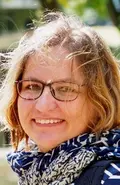Dictatorship Experience and Transformation
Duration
01/2019
- 12/2022
Funding
Bundesministerium für Bildung und Forschung (BMBF) :
1 000 000 Euro
Duration
10/2023
- 09/2025
Funding
Bundesministerium für Bildung und Forschung (BMBF) :
500 000 Euro
Project management

Subprojects
- oral history research centre Prof. Dr. Christiane Kuller
- Between experience and memory Prof. Dr. Jörg Seiler
- Meeting places of the MfS and places of dissidence in Erfurt Prof. Dr. Christiane Kuller
- From GDR Homeland Studies to Social Studies Prof. Dr. Sandra Tänzer
- Family memories of everyday life and the reality of rule under the SED dictatorship Dr. Agnès Arp
The starting point of the project is the assumption that not only individual and collective experiences during the GDR (German Democratic Republic - DDR) itself, but also the deep biographical upheavals of the post-reunification period shape the memory of the GDR. In the following decade, the political debates of 1989/90 gave rise to a conflict of memory that continues to have an impact today. This determines the time frame of the project, which takes a look at the last two decades of the GDR and the two following decades of transformation together and deliberately transcends the historical caesura of 1989/90, and the two leading research questions:
- What concrete experiences of the late GDR and the transformation period feed current memories, how are they articulated and passed on?
- How do these memories relate to the diverse public representations of the GDR, and how do the latter support or prevent differentiated forms of historical judgement?
Questions of communicating GDR history are a cross-sectional task of the joint project. To this end, cross-border research and teaching environments are being created at the interface between science and non-university institutions and tested as development projects. Actors who teach the history of the GDR as well as didactic competences in close connection with scientific and practical expertise at universities and in memorials, museums and archives will work together in joint events. The experimental-explorative character of this new format aims to tie in with the experience of teaching practice as well as theoretical assumptions in the design of teaching and learning processes, and to critically reflect on the results.
Dictatorship? Transformation? More than thirty years have passed since the end of the GDR. And yet the events of German division and upheaval still characterise upheaval continue to shape our present. The digital platform presents a selection of key sources and materials from this period. It is aimed at anyone who wants to take a critical, differentiated and multi-perspective look at the history of the GDR and the period of transformation.
The platform was developed as a cross-network project. Central sources and materials from the individual subprojects are made available.
A curated online exhibition conveys the research results of the network in a thematically structured way; a media library also offers the opportunity to access the digital copies provided as sources and to enable a critical examination of the sources.
